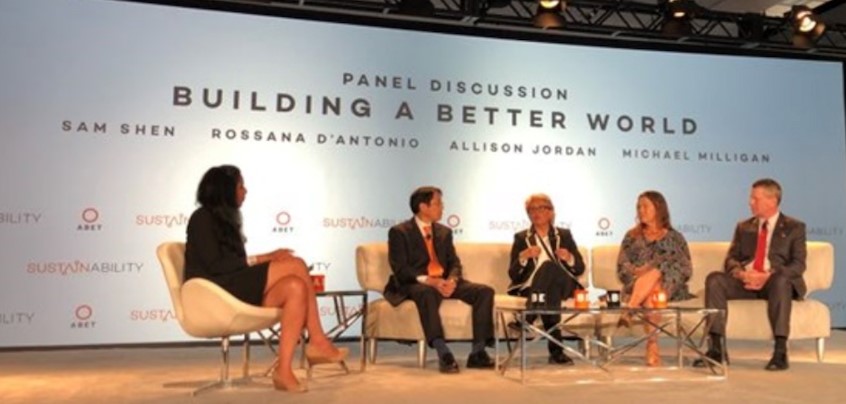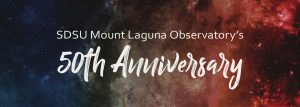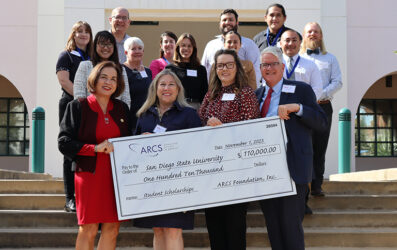
SDSU Distinguished Professor Samuel Shen was a speaker at the opening plenary session on April 12 at the 2018 Symposium of the Accreditation Board for Engineering and Technology (ABET) held at the San Diego Grand Hyatt. ABET is a non-governmental organization formed in 1932 to accredit post-secondary education programs in applied and natural sciences, computing, engineering, and technology. Over 800 people from around the world attended the 2018 symposium. Dr. Shen staged together with Rossana D’Antonio, Deputy Director for the Los Angeles County Department of Public Works; and Allison Jordan, Vice President of the Environmental Affairs for Wine Institute. The plenary session was moderated by Aarti Shahani, a Tech Reporter on NPR’s Business Desk, and Michael K. J. Milligan, Executive Director of ABET. The main theme of this symposium is sustainability for building a better world.
Dr. Shen’s speech focused on the curriculum modernization to meet the educational demand of tomorrow’s carbon-neutral lifestyle which will be supported by technical languages, big data, and artificial intelligence. The technical languages will be computer codes, the languages’ vocabularies will be big data, and the languages’ grammar will be artificial intelligence.
Dr. Shen said, “The most essential skill a college student will have to learn is the future technical languages based on computers. People will use computer codes to make daily communications, to speak, to write, and to present. Each university student will have to learn one or multiple computer languages, such as Python, but easier than Python. The languages’ vocabularies will be big data. Students will need to learn thousands of big datasets for their effective and accurate communications. The languages’ grammar will be artificial intelligence. Students will need to take machine learning and other artificial intelligence classes so that they can use their technical languages with correct grammar.”
Mathematics curricula will have to be modernized more urgently than other areas, because the future technologies will use more mathematics than ever before. Future mathematics education may need to be more customized to specific majors than before. The one-size-fits-all curricula of mathematics education will not work anymore. This requires a mathematics department to design new curricula for many different disciplines, such as engineering mathematics, biomathematics, climate mathematics, chemical mathematics, psychology mathematics, musical mathematics, fine arts mathematics, computer mathematics, pure mathematics, and so on. The customized mathematics education requires the instructors to be specialized in not only mathematics, but also a customized area as well as statistics and computing. Teaching requires the frequent use of the examples and big datasets from the customized area. Therefore, universities will have to produce more cross-disciplinary PhD’s and make more joint faculty appointments between mathematics and other departments.



